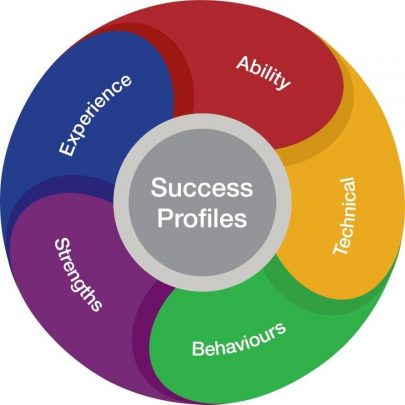Your application will be assessed using the Civil Service Success Profiles recruitment framework. This framework allows us to use a combination of criteria to describe the requirements of the post.
Success Profiles will allow you to provide evidence against those criteria during the selection process. Not all posts will make use of all criteria, so when applying for a role, make sure to look at the job description which will say the elements of the Success Profiles you will be assessed against for that role.
Success Profiles is a flexible framework which lets us assess your application against a range of selection methods, ensuring that we give the best possible chance of finding the right person for the job.
There are five elements to Success Profiles:

Ability
The aptitude or potential to perform to the required standard.
Technical
The demonstration of specific professional skills, knowledge or qualifications.
Behaviours
The actions and activities that people do which result in effective performance in a job.
Strengths
The things we do regularly, do well and that motivate us.
Experience
The knowledge or mastery of an activity or subject gained through involvement in or exposure to it.
Top Tips
When using Success Profiles, we recommend the STAR model to structure your answers. We find this allows you to best demonstrate your skills and experiences, so we can get to know you.
Situation – what was the setting and conditions, and what was your role?
Task – what specifically needed to be done, and by when, and why?
Action – what did you do in terms of your own contribution and ensuring the contribution of others, how did you do this, and why?
Result – what was the outcome, and how did you contribute to it, and what difference did you make?
How we decide who to invite to interview
At Defra, we shortlist for interview based on merit. The selection panel assesses the evidence presented by all applicants against the advertised criteria, and the highest scoring applicants are invited to interview.
Candidates who pass the interview criteria but are not offered a post may be kept on a reserve list for 12 months and may be offered similar roles across the department. Defra is committed to anonymous sifting. This means that identifying characteristics such as your name, gender, age, address are removed from your application until after shortlisting for interview has taken place.

Reasonable Adjustments
We want to support you if you need an adjustment at application, online test or interview stages in the recruitment process.
We consider visible and non-visible disabilities, neurodiversity or learning differences, chronic medical conditions or mental ill health.
Examples include dyslexia, epilepsy, autism, chronic fatigue, diabetes, or schizophrenia.
Some of the adjustments we can offer include:
- Application or interview help
- A time of day that works for you
- Extra time
- Sign language interpretation
- Advice about assistive technology
If you want to apply for a vacancy and need an adjustment at any stage in the application and selection process, contact details will be shown in the advert.

